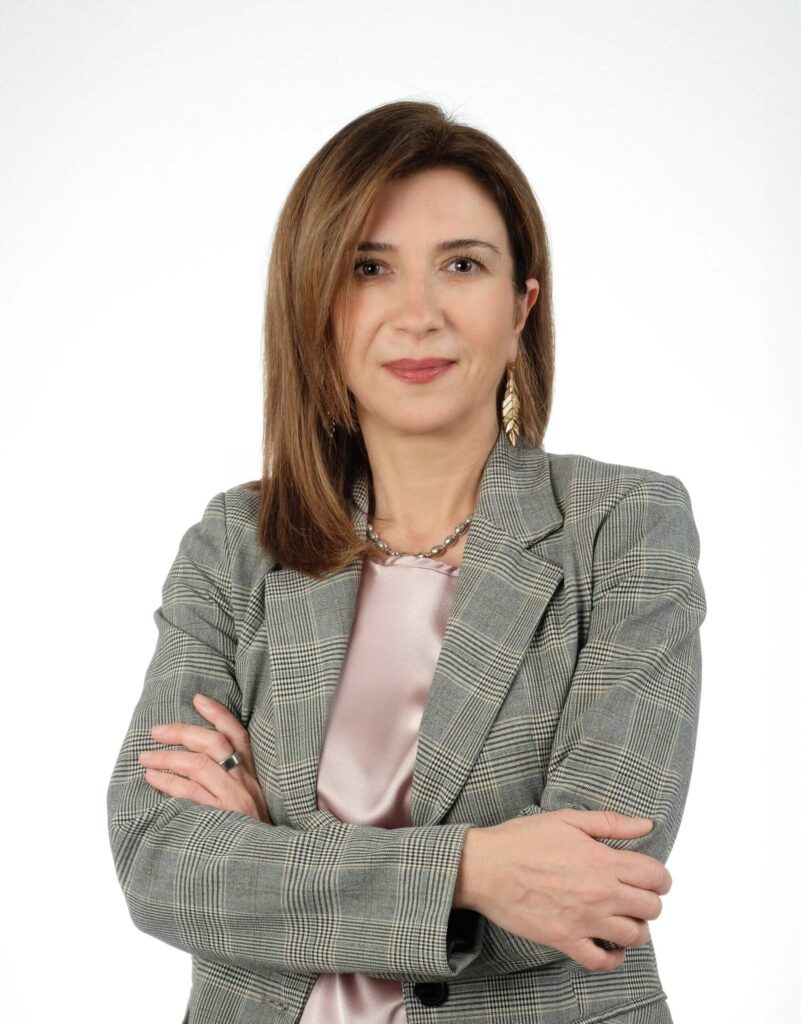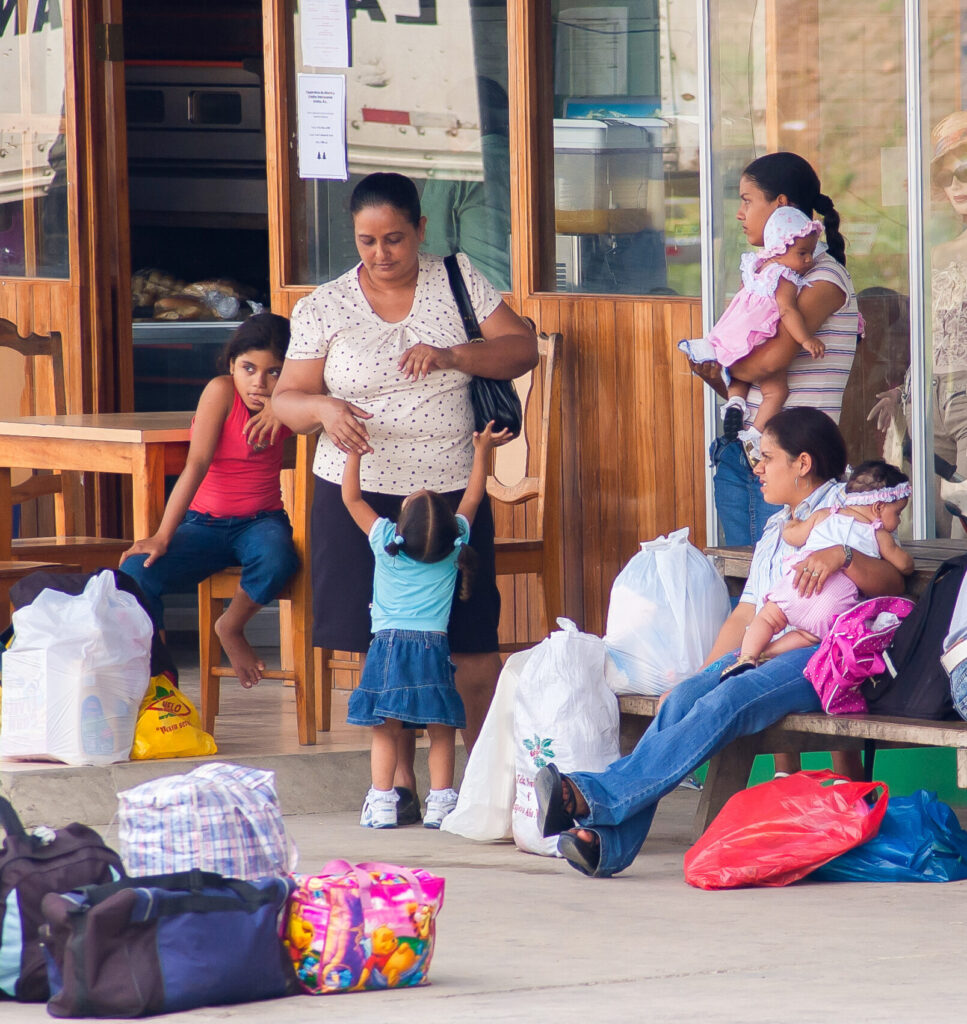
Nataša Goronja joined as CFI’s Managing Director in January 2024, coming to CFI from the Miller Center for Social Entrepreneurship, housed at Santa Clara University. There, she led the Miller Center’s social enterprise ecosystem product offerings and supported organizational alignment, strategic planning, business development, and key stakeholder engagement. She previously worked with the World Bank and IFC on financial inclusion, digital finance, and consumer protection. Earlier in her career, Nataša served as Vice President of the Boulder Institute of Microfinance.
With three decades in financial inclusion and a passion for consumer protection in inclusive finance, Nataša is excited to lead the CFI team as it seeks to advance inclusive financial systems around the world.
How did you get involved in inclusive finance and what excites you the most about CFI?
NG: I have spent much of my life thinking about human security challenges and what drives conflict and how to prevent it. When I was 17 years old, I came to the United States during my senior year of high school as part of a student exchange program. While I was in the U.S. in 1992, my homeland of Bosnia and Herzegovina turned into a war zone, and I was unable to return home to my family. I remained in the U.S. and attended the College of William and Mary in Virginia. There, I took a course on development economics that changed my life. As I was reading about microcredit, I kept thinking about what Bosnia would need once the war ended. I decided that I would dedicate my life to working on financial inclusion as a precursor to economic activity.
As I was reading about microcredit, I kept thinking about what Bosnia would need once the war ended. I decided that I would dedicate my life to working on financial inclusion as a precursor to economic activity.
After college, I landed a job working on women’s financial inclusion and returned to Bosnia soon after the war ended. Over the years, I have met many people working on innovative solutions to help drive financial inclusion, and it has been a true joy to see the sector evolve. Twenty years ago, I could never have imagined that we would be speaking about open banking and digital public infrastructure (DPI), that we would have financial services seamlessly integrated into consumer journeys through mobile banking apps, and that satellite images would be used to make decisions on insurance coverage. Of course, more remains to be done to enable underserved people to have access to responsible and inclusive financial solutions, but I am excited for what lies ahead!
What do you see as the most pressing issues facing inclusive finance today?
NG: If we look at the inclusive finance sector, 2023 was the year when we focused our conversations on artificial intelligence and open banking – two topics that I think are here to stay. We must continue to think deeply about the role of technology in facilitating the delivery of financial products and services and about how innovations in business models and recourse mechanisms can help achieve better outcomes for consumers. This year, we are also seeing more conversations around DPI and digital credit. We must focus our collective efforts to ensure that inclusive finance solutions are created in a way that is responsible for consumers, amid the rapid pace of technological trends.
Looking ahead, we should look at where AI and client empathy meet and carefully consider infrastructure that is being built within countries, data trails that are generated, who is excluded, and the data governance mechanisms that need to be built. Developments on data governance in Brazil and India offer important learnings to the rest of the world. Within the space of inclusive finance, everything we do must benefit consumers and foster greater trust. Only by understanding and responding to their needs, and building safe and secure environments to transact, can we ensure our work has the right impact.
How does the Responsible Finance Forum (RFF) help address these issues?
NG: RFF is a global platform that brings stakeholders together to tackle critical questions and address consumer protection gaps within inclusive finance. Through working groups and global convenings, it provides an opportunity for people around the world to share research on consumer risks, emerging best practices and solutions to address these risks, as well as initiatives to responsibly scale inclusive financial services.
Today, I think the sector needs evidence-based policy recommendations – and this is what the RFF helps provide. While we have seen tremendous progress to date, poverty and global inequality are on the rise, coupled with the destabilizing factors of climate change and conflict driven migration. Additionally, consumer trust in digital products — which CFI’s research has shown is a significant driver of financial inclusion — is declining. With data breaches, scams, and a lack of digital literacy education, in some markets, consumers are either refusing to go digital or reverting to cash-only.
At this critical moment, we must ensure the progress made by our sector does not reverse.
When our sector works together, there is great power and tremendous opportunity.
When our sector works together, there is great power and tremendous opportunity. CFI is uniquely positioned to facilitate collaboration and help the sector work together to unearth market gaps that need the most attention, driving lasting change for low-income clients. I am excited to lead the team as we undertake rigorous research and apply a systems-level approach to all our projects. In addition to our important recent research on bias in AI and data governance, we are working on an interesting pilot to explore how positive friction can be built “by design” into financial solutions.
Why is it important for the sector to come together like this?
NG: Since joining CFI six months ago, I have spoken with people across the inclusive finance sector. I have heard many innovative ideas and potential solutions to explore and am excited to collaborate with policymakers and practitioners to help translate good ideas into robust policy. My hope is that CFI’s research findings can help unlock new solutions for digital public infrastructure or Privacy by Design in practice. RFF provides a neutral space for actors within inclusive finance to come together and discuss what needs to be done and how we can do it together. We tackle difficult issues, provide a space for people to raise their opinions, and then work together toward real-world solutions.
In addition to the RFF convenings and working groups, the deliberations aim to help provide investors, innovators, and regulators with guidance to ensure consumers have access to inclusive and responsible products. Having worked across the financial inclusion space, my personal hope is to bring the perspectives of many different stakeholders — from financial service providers to investors and other funders — to the conversations. I believe that having worn many hats, I can help to further CFI’s partnerships.
I firmly believe that the responsible finance space will thrive when policymakers, financial service providers, nonprofits, and others all work together. I look forward to helping further CFI’s vision to work towards a world where all people can use financial services and participate in the economy to improve their lives and prosper.
The Responsible Finance Forum (RFF) will convene in-person July 2-3 in Fortaleza, Brazil under the theme Bridging Inclusion and Innovation to Improve People’s Lives. This year’s RFF event is an official side event of the Global Partnership for Financial Inclusion (GPFI) – an inclusive platform for all G20 countries, interested non-G20 countries, and relevant stakeholders to carry forward work on financial inclusion. The agenda for the 2024 RFF convening begins with taking a systems-level view to identify and address challenges that can affect the achievement of responsible outcomes for consumers. This includes an interactive session to develop safeguards for DPI, presented in conjunction with UNDP and the UN-Office of the Special Envoy for Technology (OSET). We will then shift to the rules that address implementation — i.e., data governance and ongoing challenges and solutions. Finally, we will zoom into the specific case of digital credit, both challenges and solutions presented by providers. After the event, CFI will release a summary report that presents key topics and discussion points and will set out a work plan with key priority topics for the next few years.










